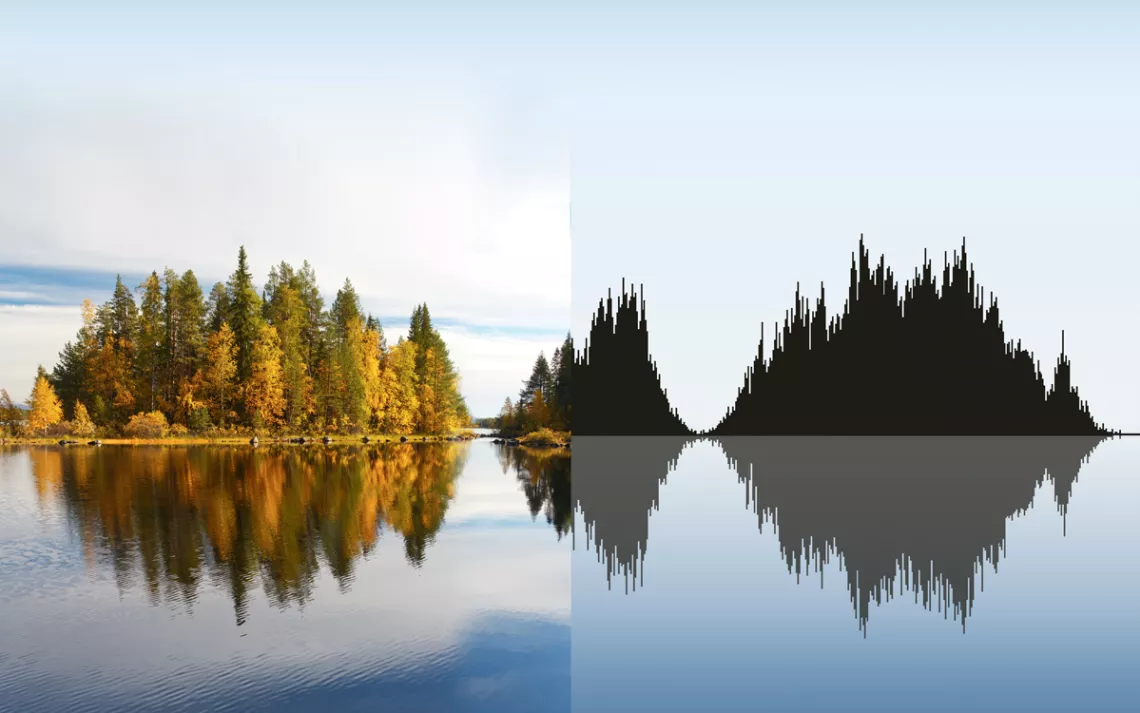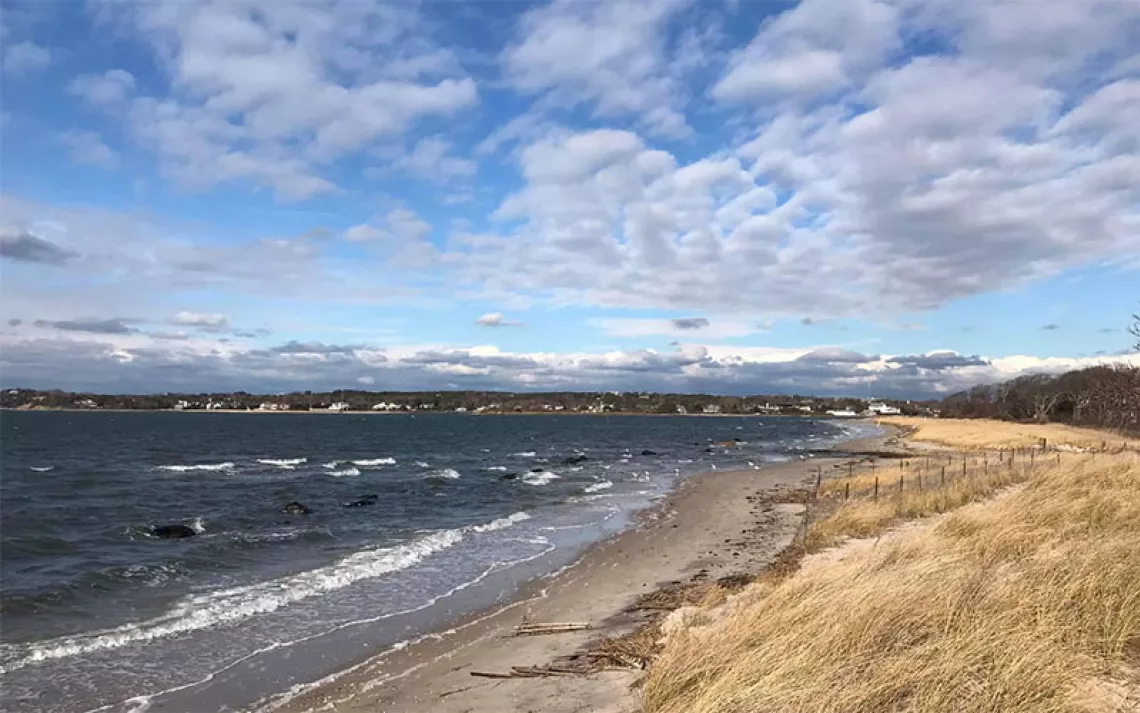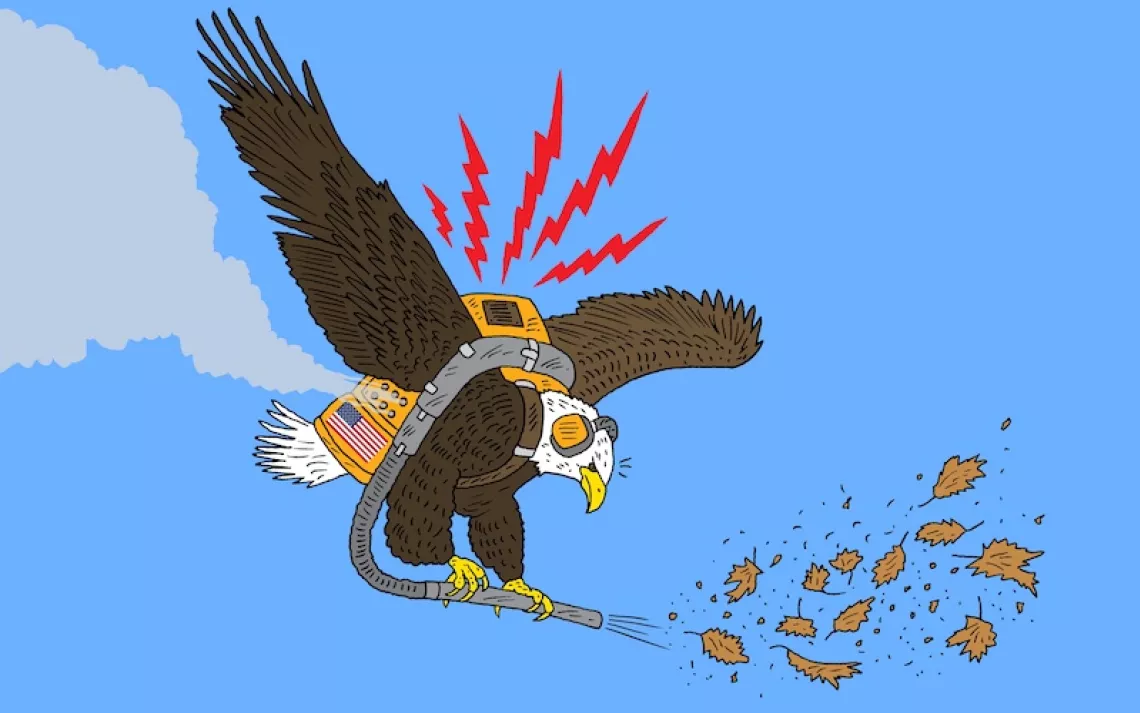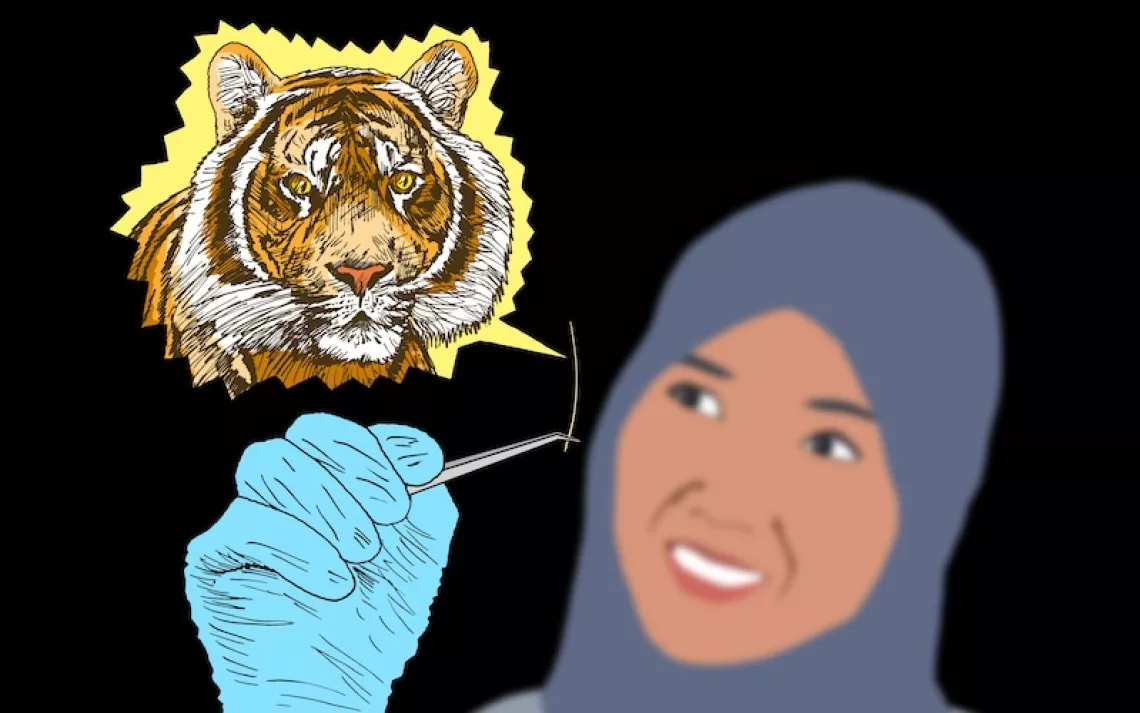Podcasts That Make the Climate Crisis Personal
A new generation of audio storytellers meet global warming

Photo by Anna Marynenko
There's something about hearing a former Exxon scientist talk about what it was like to research climate change in the 1970s and '80s that just lands differently than reading quotes. Take Ed Garvey. He was one of the scientists who worked on what he refers to as "the tanker project"—an Exxon endeavor to collect real-world data on global warming.
For the podcast Drilled, I flew to JFK airport in the summer of 2018 to interview Garvey as well as two other former Exxon employees: Richard Werthamer, a research director who had overseen some of the company's climate projects back in the '70s (he said that other reporters had interviewed him but were always in a hurry—no one stayed for lunch), and Morrel Cohen, a scientist who had worked at Exxon in the '80s and '90s. I rented a car and marked my route on a map. First I headed out to Sag Harbor, then back to New York City for a day, and then over to Maplewood, New Jersey. I wasn't sightseeing; I was scientist-seeing.
Garvey described what it was like working at Exxon Research and Engineering—a department the company had intended to be the "Bell Labs of energy" all those decades ago. "The guy I shared an office with was developing some of the first lithium batteries. There were guys working on nuclear, solar. . . . It was a very heady time." After his stint at Exxon, Garvey worked for the EPA on the Hudson River cleanup.
During our conversation, I pointed out that a decade after he left Exxon, the company started placing op-eds and ads casting doubt on the climate research he and so many others had done there. When I asked him how he felt about that, he responded with a catch in his throat. "I felt kind of powerless," he said. "The science was pretty definitive. It was like, how much more evidence do you need? I just watched it and thought, 'This is really scary.'"
The next day, I visited Cohen at a senior apartment complex in New Jersey. He told me about an eager research associate at Exxon who had proposed some rudimentary climate studies that sounded like a good idea at the time. Cohen said, "A week later, I caught up with him and asked how it was coming along, and he said, 'That's not the type of research to be doing around here.'" It was a clear indication to Cohen that management's priorities had changed.
The tone of Garvey's voice when he describes watching Exxon spin the narrative, Werthamer's clear desire to be on the right side of history, the wry chuckle from Cohen after recounting Exxon's shifting priorities—none of it hits quite the same way in print.
That's the power of narrative audio storytelling. And that's why the podcast format makes climate stories far more compelling than they might be on paper.
Inherited, for example, brings us the stories of young climate activists in their own voices. In the fourth and final episode of the pilot season, they speak of their dreams for a world in which climate change has been solved and of their bittersweet realization that prior generations have so badly failed them.
"In visual media, climate is often represented on the macro level—through sweeping drone shots of melting glaciers, formidable graphs of years of data, and images of teeming cities suffering heat waves," said Georgia Wright, the show's cohost and coproducer. "Audio, on the other hand, is direct and character-driven, intimate on the micro level. A good audio story distills grand, abstract ideas into the voices of individual humans, making otherwise daunting concepts emotionally approachable. Audio has the ability to make the climate crisis personal."
For some, podcasts offer a way to expand on stories they've told in other media. Generation Green New Deal started out as a documentary about the origins and rise of the Sunrise Movement and, as the title suggests, the vision for the Green New Deal. When filming had to stop just short of the project's completion because of COVID-19, filmmaker Sam Eilertsen pivoted to podcast. But according to Eilertsen, it wasn't just a way to salvage the work. "The thing that particularly excited me about doing a podcast adaptation of Generation Green New Deal was having the ability to tell much longer-form stories," he said. "A feature documentary film is usually around 90 minutes, whereas our first season was over 300 minutes in total. We were able to do deeper dives on issues we can only scratch the surface of in the film."
The podcast format lends itself to expanding the reach of explanatory journalism too. On A Matter of Degrees, political scientist Leah Stokes and author Katharine Wilkinson make policy debates more accessible. "Before I started my own podcast, I was invited on a lot of other shows and found that the messages reached a lot of people," Stokes said. "I realized that podcasts are a great way to talk to people who want to learn more about climate change. On our show, we re-created a bunch of stories from my book Short Circuiting Policy about how utility companies have shaped or blocked climate policy over the years, making them more accessible to a wider audience. Climate podcasts can also bring in a more diverse array of voices, which I think is crucial to building the climate movement."
According to a recent Nielsen report, some 22 million Americans consider themselves "light" podcast listeners, tuning in to one to three shows a month, while 14 million are "heavy" listeners, at more than 10 shows a month. Approximately 40 percent of podcast listeners are non-white. And demand for climate-focused shows is growing: In just the past three years, we've gone from having a handful of shows tackling climate to a whole new climate podcasts category on iHeartRadio. A petition asking Apple to add the same category to its podcast app has been circulating.
But there's a catch: In our age of disinformation, where everything from the coronavirus pandemic to the outcome of our elections can be warped and distorted for political and economic gain, podcasts, like traditional and social media, provide a potent platform for misleading the public. It's a particularly acute problem for climate podcasts—arguably no other issue has been as warped by disinformation as climate change. Climate deniers are still regular guests on several shows, and the softer discourses of delay abound.
The Joe Rogan Experience, with its millions of listeners, has hosted Randall Carlson more than once to talk for hours on end about how Earth's natural cycles (and sunspots, volcanoes, etc., etc.) are really to blame for climate change while "the so-called consensus view" on climate is driven by politics. Rather than press him for evidence, Rogan gifted Carlson with the quip "that's the real inconvenient truth."
And then there are the ads.
Fossil fuel advertising is nothing new, but the ads running on podcasts massively overstate what those companies are doing to combat climate change. According to an ExxonMobil ad that ran on podcasts in 2020, the company's carbon-capture technology is this close to capturing 90 percent of emissions. It's not remotely true. The Federal Communications Commission does not specifically prohibit false or misleading ads in podcasts. The same ads ran on NPR podcasts such as Invisibilia and Science Friday, but not on NPR broadcast. The reason why, according to NPR spokesperson Isabel Lara: "The FCC rules only apply to broadcast. NPR worked with our sponsorship team at National Public Media to design guidelines that adapt to digital."
In other words, because it's not illegal in podcasts.
If NPR's ethics policy boils down to "anything that's not illegal is fine," and The New York Times doesn't think fact-checking is necessary for podcasts (a point made clear in the wake of the scandal over its Caliphate podcast), how will other, newer media organizations combat the spread of disinformation?
Audio storytelling is crucial to empowering people to better understand and respond to climate change. But like social media, it can also be weaponized as a tool for distraction, deception, and disinformation. Unless the same rigors of fact-checking and federal regulation apply, the podcast risks becoming the latest battleground in the climate info wars.
This article appeared in the Fall quarterly edition with the headline "An Ear for Storytelling."
 The Magazine of The Sierra Club
The Magazine of The Sierra Club






